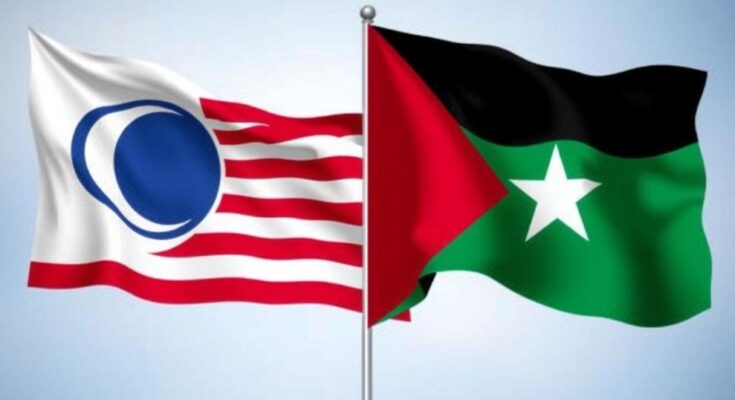The United Arab Emirates has assured the U.S. that it will not arm Sudan’s paramilitary forces amid ongoing civil conflict in Sudan. This commitment led U.S. lawmakers to withdraw efforts to block a $1.2 billion arms sale to the UAE. The assurance aims to mitigate violence in Sudan, with lawmakers stating they will monitor compliance closely.
On Thursday, United States lawmakers reported that the United Arab Emirates (UAE) assured the U.S. government it will cease supplying arms to paramilitaries involved in the ongoing civil conflict within Sudan. This assurance came as a response to concerns raised by lawmakers over the humanitarian crisis resulting from the violence. In exchange for the UAE’s commitment not to arm Sudan’s Rapid Support Forces (RSF), the lawmakers decided to withdraw their attempts to obstruct a significant $1.2 billion arms deal intended for the UAE.
Senator Chris Van Hollen shared a letter from the White House, which detailed the UAE’s commitment. The letter, signed by Brett McGurk, the administration’s Middle East coordinator, stated, “Despite reports we have received suggesting the contrary has occurred to date, the UAE has informed the administration that it is not now transferring any weapons to the RSF and will not do so going forward.” A follow-up assessment regarding the trustworthiness of these assurances is promised by January 17, shortly before President Biden’s anticipated transition of power.
Senator Van Hollen emphasized his intention to leverage arms sales as a mechanism to mitigate the violence in Sudan, warning of further action should the UAE fail to comply. Representative Sara Jacobs, who supported similar actions in the House, expressed her commitment to closely monitor the UAE’s adherence to this promise, noting that decreased UAE support could weaken the RSF’s military capabilities and foster conditions for negotiation.
Although the UAE has consistently denied supporting the RSF, allegations by UN experts indicate a credible history of arms supply through Chad. Recently, the U.S. lawmakers aimed to delay a substantial arms sale to the UAE, which included advanced long-range missiles, as part of a broader examination of arms exports following the prior administration’s agreements that sought to bolster U.S.-UAE relations in the context of regional dynamics.
The civil conflict in Sudan has escalated since April 2023, resulting in catastrophic humanitarian consequences, including tens of thousands of deaths and the displacement of over 11 million individuals. This situation has drawn international attention, prompting U.S. lawmakers to take legislative measures aimed at restricting arms sales to the UAE, which has been accused of supplying weapons to the RSF. The negotiations between the UAE and U.S. authorities reflect broader concerns regarding accountability in arms exports and their implications for violent conflicts worldwide.
The United Arab Emirates has pledged to halt any weapon transfers to Sudan’s Rapid Support Forces (RSF), aiming to address severe U.S. concerns regarding the ongoing civil conflict in Sudan. Lawmakers have indicated that their cooperation hinges on the UAE’s adherence to its assurances. The evolving situation highlights both the complexities of international arms relations and the significant humanitarian impact of military support in conflict regions.
Original Source: thedefensepost.com




